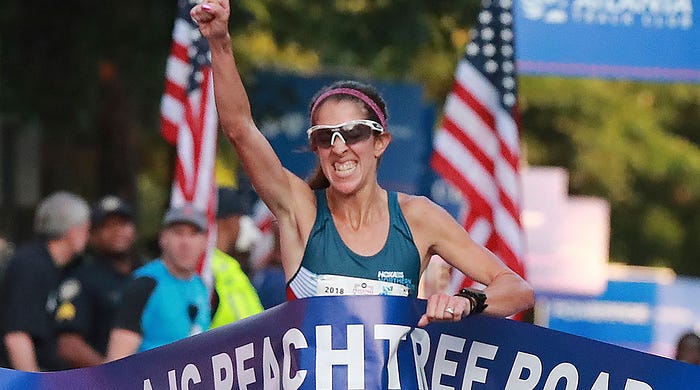Why Every Athlete is a Brand

When I was the CMO at the Los Angeles Marathon, I became friends with a number of professional runners. I enjoyed helping them however I could, and I was able to share my marketing experience with them. When I left my post in 2011, I started mentoring pro athletes as a hobby. It’s not something I’ve ever been paid for; I just enjoy helping young adults navigate the modern world of media and branding. Having worked in marketing for over 30 years, I have so much intel I can help them with. The most important thing I’ve learned in this process is that each athlete is a brand, like their own startup business.

For several years, I’ve served on the board of Ben Rosario’s Flagstaff, Arizona-based professional running team HOKA NAZ Elite. My role there encompasses both non-profit board work and athlete mentoring. Ben has been ambitious about building a modern version of a professional sports team: “sharing the journey” is actually part of their mission statement, and they use all kinds of media channels to both inspire fans and deliver ROI to their brand partners.

This recent team profile in the New York Times was, for me, a validation of the strategy, culture, and tactical execution that we’ve helped build at NAZ Elite. The article explains how the running and the media execution go hand in hand. I work with each athlete on the team to leverage these principles to create and maximize their own brand identity.
Here are four things I teach in this process:
- A brand is the sum of all of its touch points. For a business all of these are important: product quality, amazon reviews, how customer support answers the phone, what the CEO says on social media, etc. And athletes also learn that means everything matters: results, the team they’re on, the brands they partner with, how they show up on social media, and what they say in interviews. An athlete cannot build a strong brand with only a few of these elements; they need to bring the full package.
- Serving a sponsor is about more than putting their logo on things. Athletes and sports teams need to engage and entertain fans on a daily basis and in the process serve the sponsor’s objectives. Like agent Josh Cox tells many of his athletes: “Your job is not to run fast; your job is to sell shoes.” It’s important for athletes to ask why a brand is sponsoring them, and what the brand’s expectations are. Then the athlete can understand how the brand can also serve the athlete’s needs. Ideally, the relationship is a balanced partnership offering equal value to each party. The brand gets help promoting and selling product, while the athlete gets financial support and media reach to build their own brand. The more interesting the athlete’s brand, the bigger their fan base, and the more benefit they offer to a sponsor. I’ve worked with NAZ Elite athlete Steph Bruce since 2011 on this stuff, and she’s done an incredible job sharing the highs and lows of her racing and life as a mother of two kids. In addition to placing in major marathons and winning the US 10K championship, she has a passionate fan base and has been featured in People Magazine. Her popularity, and value to sponsors, is a direct result of her vulnerability and storytelling skill.
- Athletes should not try and be all things to all fans. They need a unique point of view. It’s much better to have a smaller but super passionate core fan base than to be plain vanilla to a larger community. As an example, the NFL’s most influential player right now is Colin Kaepernick, who hasn’t even played in two years. He’s polarizing, but that’s exactly why Nike pays him millions and made him the centerpiece of the most talked about ad campaign of 2018. I lead workshops with the NAZ Elite runners to get to the core of who they are as people. This is a challenging process that never ends, but I hope they become self aware about what their purpose is and how they show up in the world.
- Athletes, teams, and sponsors need to be aligned on the objective. This is just like companies who have a strong mission statement and attract employees who are excited about the values of a business. I encouraged Ben to create a mission statement for the team, which he did: Train hard. Race Fearlessly. Share every part of the journey. It’s this last part that really separates them from other teams. And that means they attract certain types of runners and sponsors: those who are excited to create and share media around the team’s training, racing, and personal athlete stories.




